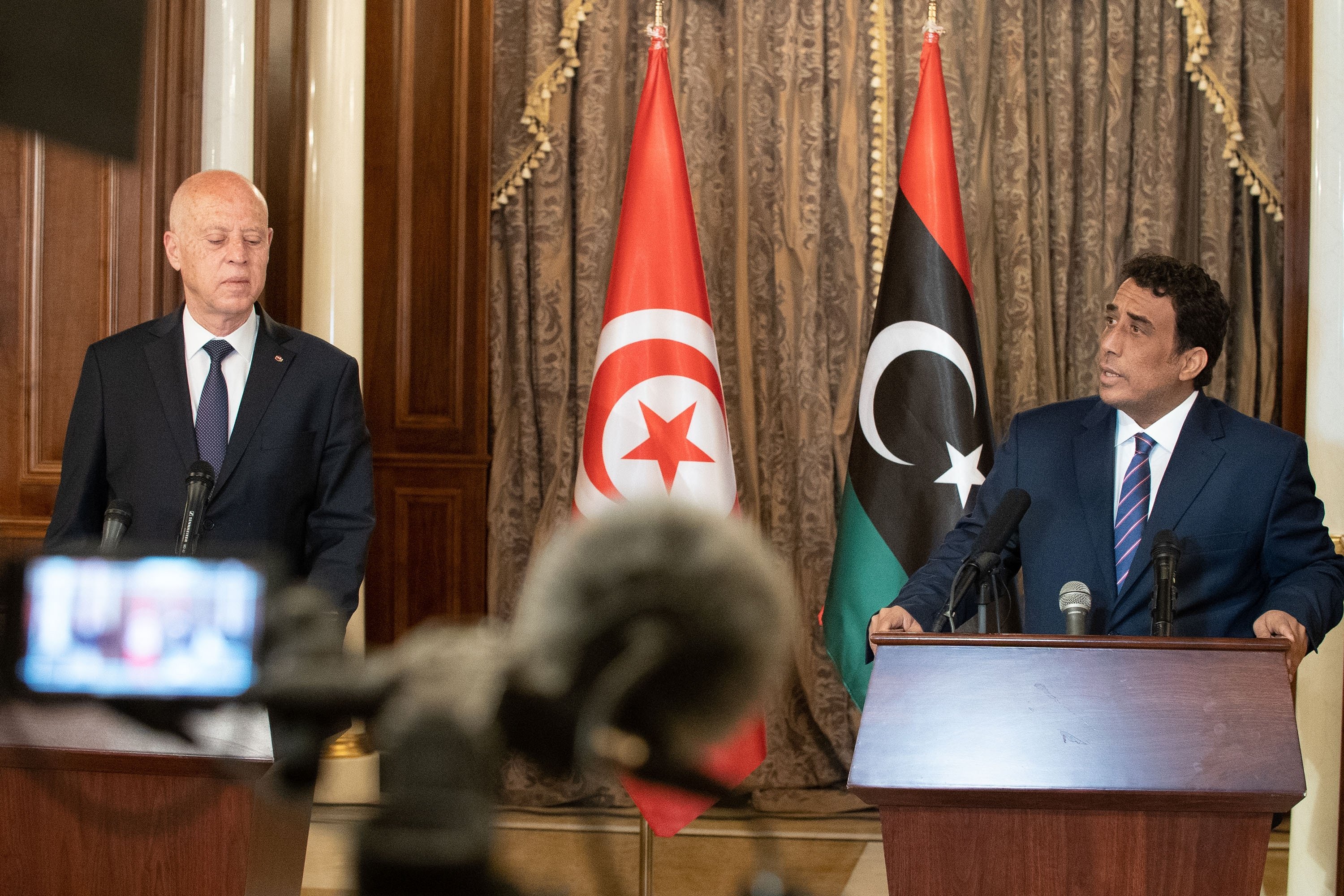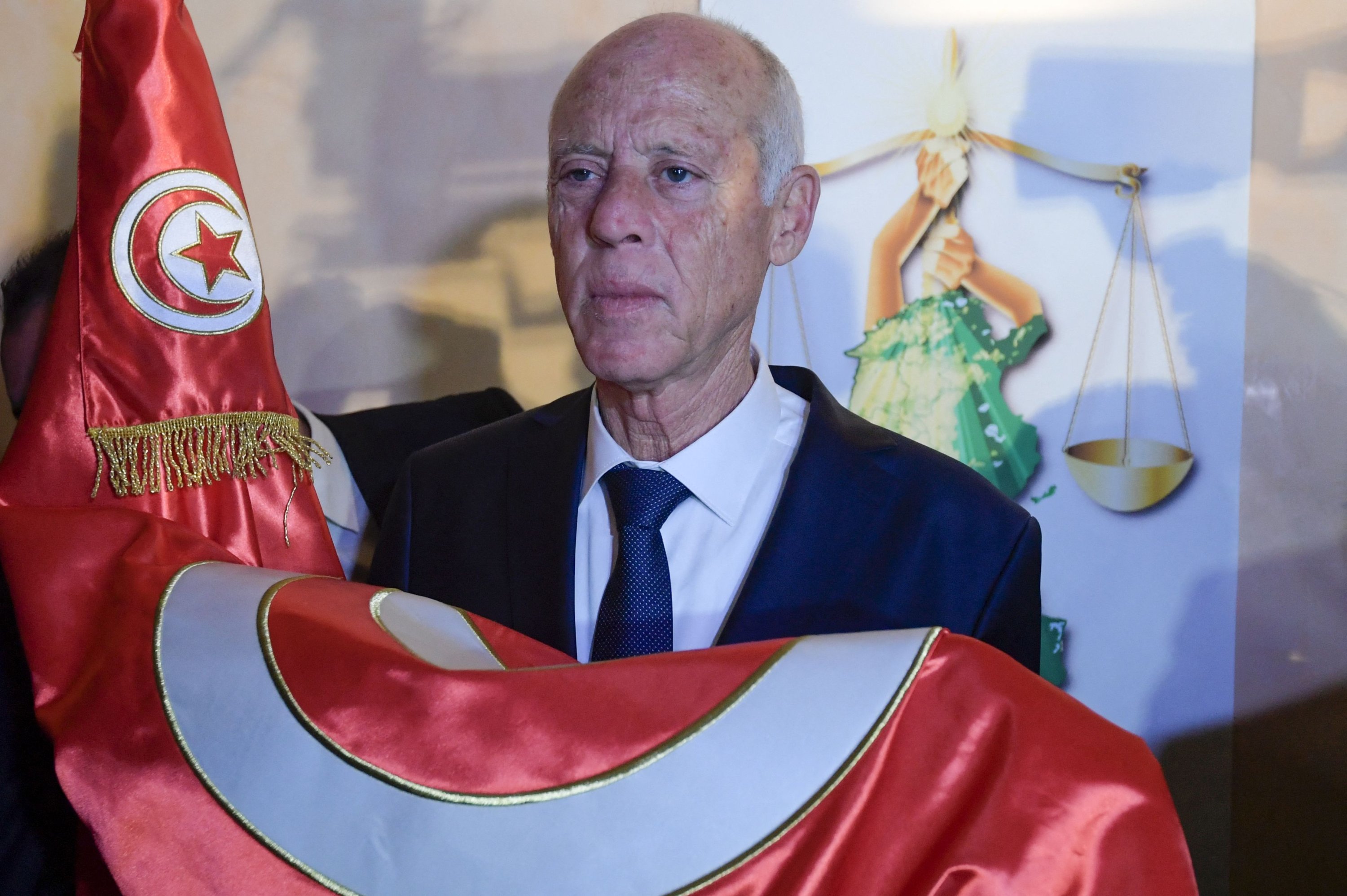When democracy collapses spectacularly in Afghanistan, it starts off to die in Tunisia. Tunisia has been recognized as the begin of the Arab Spring for the final 10 years. In the future, it might also be seen as the location that symbolized its end.
After a working day of widespread protest on July 25, President Kais Saied suspended parliament, imposed a curfew and dismissed Prime Minister Hichem Mechichi. This was adopted by a purge of senior officers and a month of the former constitutional regulation professor ruling by decree.
Over the last couple days, as the entire world watched Afghanistan, deputies and judges have been put beneath home arrest. Even though Saied has legitimated his actions by invoking Write-up 80 of the constitution, the legality of his strike in opposition to his opponents is particularly contested. Even so, possibly the most eye-opening facet of the very last 7 days is the high diploma of support enjoyed by the president. Some 87% of the nation are reportedly in favor of his dismissing of parliament.
Arab Spring: Born and died in exact put
This is a very low stage for democracy in the Center East. Two nations, for which the geographical definition of the Middle East is stretched to involve the two, slide into authoritarianism in the exact same month.
Democratic units appear to be weak prior to the two violence and basic disenchantment. After tiny additional than a 10 years due to the fact the Arab Spring, its poster little one and only correct emergent democracy seems to have descended into a route to authoritarianism with the astonishing help of its people.
It is also a dispiriting second for United States and European international coverage efforts a lot more broadly. Even though Afghanistan demonstrates the limits of U.S. armed forces ability, Tunisia demonstrates a failure to seize an option.
The Arab Spring was a seminal generation-defining instant for the location and a bring about for grand dreams of reform. A decade on, it is crystal clear that it was a missed chance to create a democratic reality.
While then-President of the European Fee Jose Manuel Barroso spoke in Cairo in 2011 to phone for “democracy to bloom” and then-U.S. President Obama promised to “support transitions to democracy” in the exact yr, each the U.S. and the EU failed to construct a extensive-phrase prepare for really noticing and making sure considerable adjust.
Ups and downs of the route
This failure was born out of a absence of being familiar with of the inherent obstacle of the business. Democratic transitions are difficult, susceptible to ups and downs and are generational endeavors. It is not at all strange for the pathway to democracy to have numerous fake starts and around misses.
In lots of situations, the seething resentment that generates an rebellion is not a valuable force for democratization but rather tends to culminate in violence. Three of the international locations impacted by the Arab Spring are currently encountering armed conflict. Some others have violently returned to degrees of authoritarianism. This must not be entirely unforeseen.
The critical real truth of sizeable political improve – that there will be excellent reverses and instability – was typically pointed out by Western policymakers but not definitely appreciated. From Libya to Syria, leaders engaged initially and then backed away when faced with rapidly-relocating and intricate predicaments. Western policy oscillates between hand-wringing compromise with authoritarians and launching interventions ill-suited for the quirks of just about every national context. The fruits of this technique are produced distinct by their absence.
Alternatively, Western foreign policy towards the Center East ought to reorient itself towards a persistent and committed engagement to democratization that is explicitly concentrated on the prolonged-term. Tunisia need to not be seen as a affirmation of prior beliefs of the inevitability of authoritarianism in the region, but as just one step backward in an enduring march toward the very best final result for the Middle East and the planet: a democratic, prosperous and tranquil condition procedure.
Democratic principles
This suggests two issues for Western overseas policy. Internationally and on the state level, leaders must be true to their democratic ideas, even when it indicates momentary instability or tough relations. This means no reducing corners and acquiring short term political gains for extensive-term servicing of fragile devices. This exertion ought to be much more than just criticizing abuses of human legal rights but also stepping up to the plate when vital. The Obama administration’s determination of $2.2 billion of help to assist Arab Spring nations – an amount of money not almost ample to comprehensively aid the process of democratization – exemplified this issue.
Domestically, it suggests that the West should really support persuade potent sentiments of countrywide unity and determination to democratization in Middle Eastern societies. In the earlier, attempts have targeted on the trappings of democratization, somewhat than the spirit. Committees, conventions and congresses can be produced but must be determined with by the extensive greater part of citizens if they are to realize success. They require the belief of their individuals that they will not be hijacked by elites or specific ethnic groups. The dangers of failure are as well good.
To this finish, a national identity is vital, and it is its absence that so usually sales opportunities to conflict. In Tunisia, this was sorely lacking. A prescient analyze discovered that marginalized towns in the peripheral south experienced now ceased to discover with the political functions dominated by the coastal elite by very last spring. It really should be no surprise that the similar cities ended up the initial to start protests by the summer months. Any procedure that does not involve this factor simply does not have the stamina and goodwill to prevail over the unavoidable trials and tribulations of democratization.
Urgent motion for Libya
These lessons should really be utilized promptly to Libya as probably the sole place with the best possibility of a legitimate democracy. Libyans already are acquainted with the perils of national division as demonstrated by the previous 10 years of conflict. Though there is an ongoing internationally led constitutional method mired in haggling, the actual answer will be identified in working with answers rooted in Libya’s personal history and society to aid make a sense of countrywide unity that can manage and resolve bumps in the road. This internationally led constitutional dialogue is not totally trusted by Libyans nor does it have substantial acquire in from essential actors. It thus are not able to be a true substitute for the national unity crucial for democracy.

Western actors really should as an alternative lookup for and guidance a alternative that emphasizes such unity. They have to have not search past the 1951 Constitution, which in the Libyan scenario, has shown its means to offer a greatly divided culture with an vital perception of national id. What sort the 1951 Constitutional template usually takes can and should really be reviewed by nearby stakeholders, having said that utilizing authentically Libyan alternatives is a a great deal-wanted setting up level. If not, even if the constitution is agreed and elections are held, there is no guarantee that the very first loser of a democratic contest will only not select up guns once again, derailing many years of development.
Right after a stressing thirty day period for supporters of Center Japanese democracy, important truths should be remembered. It stays in the regional and world-wide pursuits of the West to motivate democracy in the Middle East. It is also even now the desire of the huge greater part of Middle Jap populations. On the other hand, a transform in technique is required with an emphasis on an unwavering determination to democracy but an comprehending that it is a sensitive prolonged-expression method.








